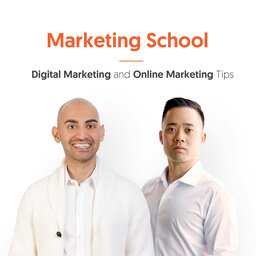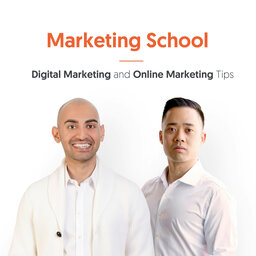Google's AI marketing event, Bankrate's AI content results, Ad index falls for 10th straight month, Nvidia jumps 30%
In this episode, Neil Patel and Eric Siu delve into Google's recent AI event, Bankrate's AI-driven content strategy, and more.
Links Mentioned in Today’s Episode:
- Don’t forget to help us grow by subscribing and liking on YouTube!
Leave Some Feedback:
- What should we talk about next? Please let us know in the comments below.
- Did you enjoy this episode? If so, please leave a short review.
Connect with Us:
- Single Grain << Eric's ad agency
- NP Digital << Neil's ad agency
- Twitter @neilpatel
- Twitter @ericosiu
Learn more about your ad choices. Visit megaphone.fm/adchoices
Marketing School - Digital Marketing and Online Marketing Tips
Neil Patel and Eric Siu bring you daily ACTIONABLE digital marketing lessons that they've learned th…Social links
Follow podcast
Recent clips

Mastermind Dinners: LeadGen That Actually Works in 2024
16:08

30M vs 500 Views - The One Change That Made All The Difference
12:35

AI concierge will affect dating - implications for business, Perplexity's AI-generated podcast, OpenAI dissolves team focused on long-term AI risks (less than one year after announcing it), Why swarming is killing SEO, and Ag1 spent $40m on podcasts
10:47
 Marketing School - Digital Marketing and Online Marketing Tips
Marketing School - Digital Marketing and Online Marketing Tips